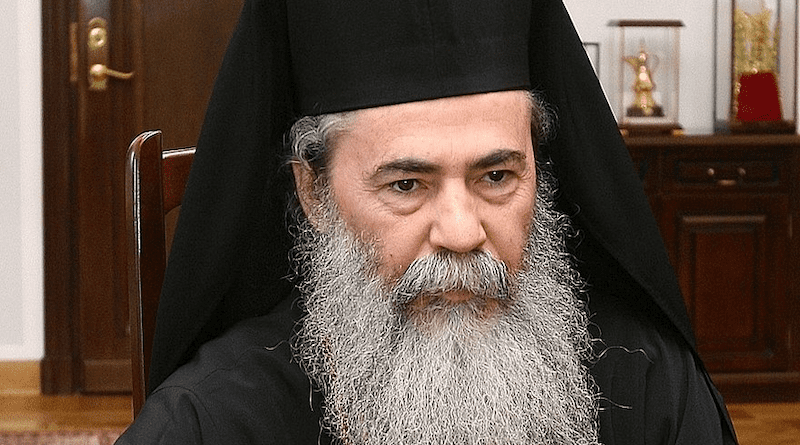Could Jerusalem Patriarchate Be Russian Orthodox Church’s Most Effective Defense In Ukraine? – OpEd
By Paul Goble
Ukraine’s Verkhovna Rada has rejected a bill that would have banned the Ukrainian Orthodox Church (UOC), formerly of the Moscow Patriarchate; but that doesn’t mean that this Russian church is out of difficulties in Ukraine, the editors of Moscow’s Nezavisimaya Gazeta say.
According to them, Kyiv will continue to put pressure on the UOC in order to benefit the autocephalous Orthodox Church of Ukraine (OCU). To counter such pressure, the editors suggest that there may be a way for another Orthodox patriarchate to get involved in Ukraine, an effort that could transform world Orthodoxy (ng.ru/editorial/2023-08-13/2_8798_red.html).
The paper notes that UOC head, Metropolitan Kliment, recently made an interesting comment about church calendars that contained what could be the basis for the involvement of another patriarchate in Ukraine and ultimately the division of Eastern Orthodoxy into two branches, a conservative one led by Moscow and a moderate one led by Constantinople.
According to Nezavisimaya Gazeta, the idea that Orthodox churches should shift from the Gregorian calendar to the Julian one is a form of modernism which comes from Turkey. And thus, the metropolitan says, Ukrainian deputies should be asking whether for their nation, Turkey is closer than “traditions drawn from Jerusalem and Bethlehem.”
That is “a curious phrase,” the editors continue. It allows one to conclude that “the UOC has a certain plan, for example, an attempt to shift under the omophor of the Jerusalem Patriarchate,” an action that has for Kyiv “historical precedents” extending back into the seventeenth century.
“In the 1620s,” they say, “the Orthodox hierarchy in Ukraine was re-established by the Jerusalem Patriarchate, which with the military support of the Cossacks secretly installed the bishops as at that time the Kyiv Metropolitanate was I the hands of Greek Catholics as a result of the Brest unity accord.”
“In the 17th century, this interference was explained by the weakness of Constantinople, but now perhaps it can be justified by the de facto split of Orthodoxy,” Nezavisimaya Gazeta continues. There are even some signs that the Jerusalem church is prepared to play such a role: in 2020, it convened an all-Orthodox conference on Ukraine.
Moscow, to the extend that the Kyiv metropolitanate and its faithful are “dear to it, “could agree to a tomos from the Holy City. Moscow and Jerusalem have very close ties.” Moreover, both defend conservative positions in Orthodoxy against “the progressivism and active ecumenism of Constantinople.”
To this day, the Jerusalem Patriarchate has “consistently supported the UOC against the OCU;” and so it would seem open to such an arrangement – especially as it could lead to a reordering of the Orthodox world into two blocs, a liberal one under Constantinople and a traditionalist one under Moscow and Jerusalem.

